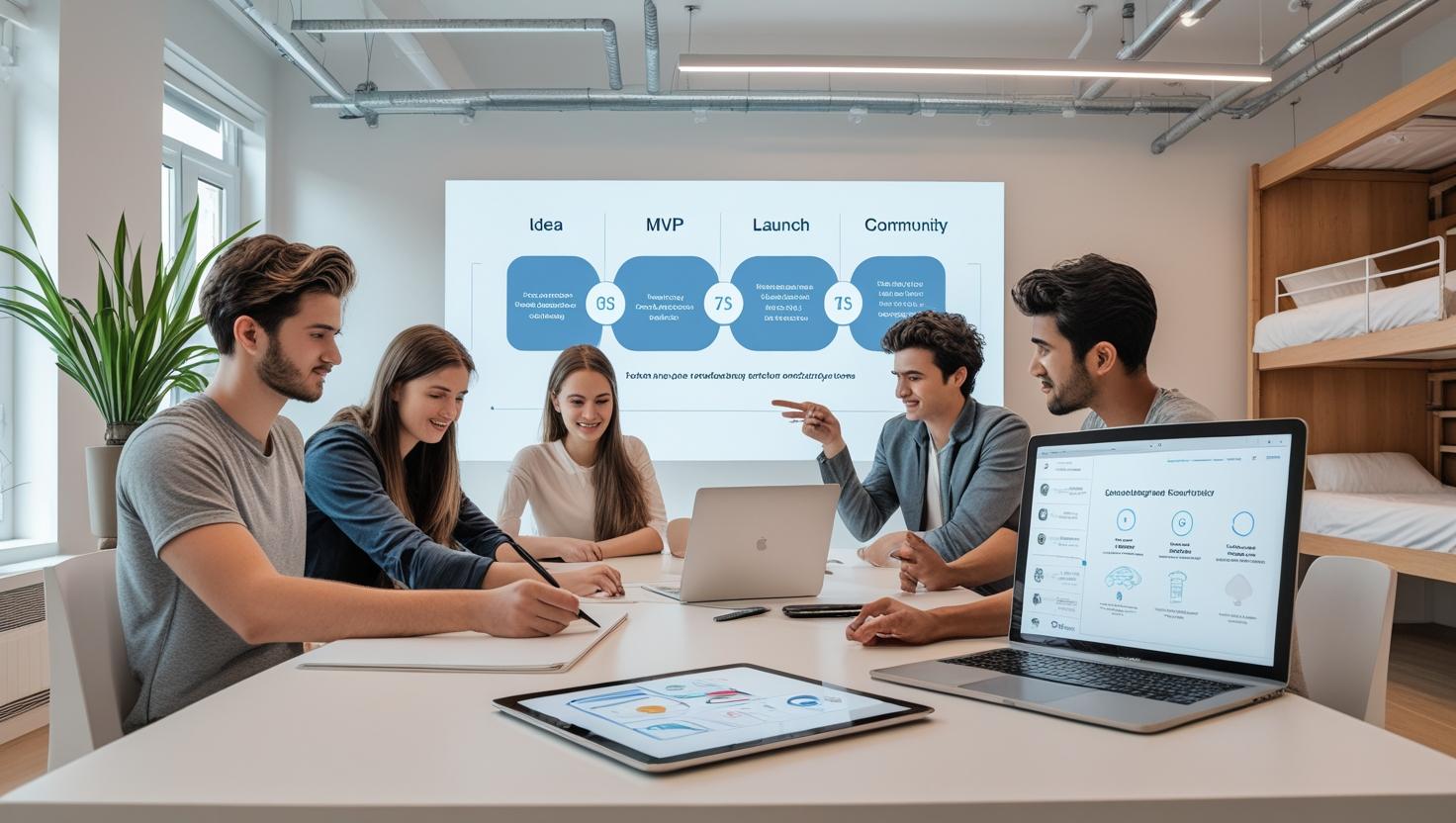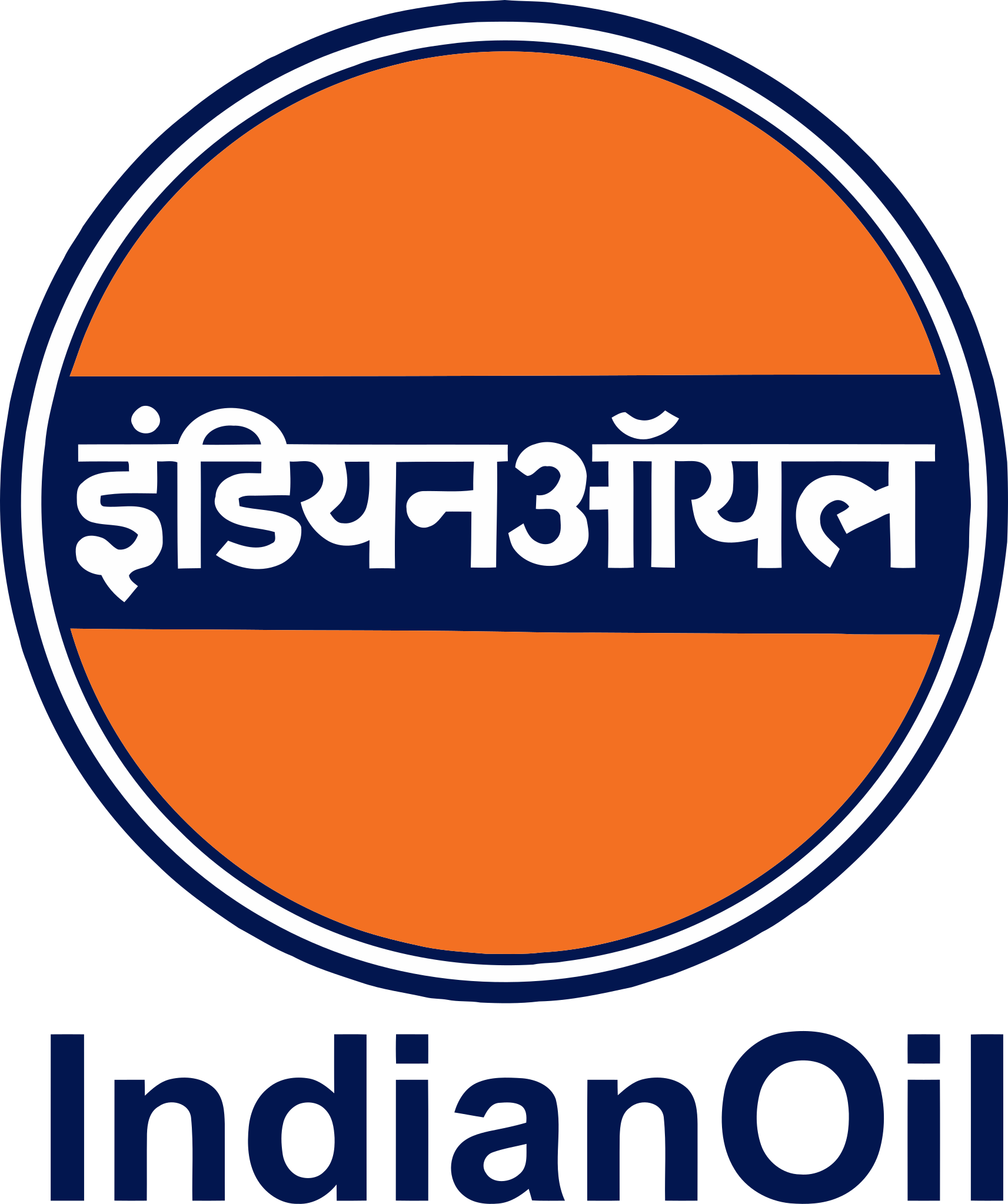The MVP That Turned Freelancer into Co-Living Entrepreneurs

Introduction
The rise of remote work has redefined how freelancers live and collaborate. Traditional rental models no longer serve the new wave of digital nomads who value flexibility, community and affordability. As cities grow more expensive and isolation becomes common among solo workers the demand for innovative shared living solutions is booming. This case study explores how a real estate technology startup built a Minimum Viable Product MVP that helped transform freelance professionals into co living entrepreneurs. With just essential features launched in record time this MVP offered an affordable entry point for property owners and freelancers to build a thriving shared economy around residential real estate.
This case study also highlights how co living MVPs are disrupting both the proptech and gig economy sectors while addressing loneliness property underutilization and high rent challenges. It showcases how the MVP strategy helped validate the market need to engage early adopters and scale a platform that now drives shared rentals across multiple cities.
Understanding the Concept
The core idea behind the MVP was simple but powerful. The startup wanted to test if freelancers would be willing to co-invest or co-rent properties with like minded professionals using a digital matchmaking platform. At the same time the platform offered property owners a way to list underutilized spaces and earn passive income by sharing accommodations with curated groups of remote workers.
The MVP version of the platform included only these core features
-
User onboarding and profile creation for freelancers
-
Smart match engine based on location budget lifestyle and profession
-
Listings of shared spaces including rooms apartments and houses
-
Digital rental agreements with co living terms
-
Basic messaging and calendar for coordination
Rather than overbuilding the platform the team focused on testing the hypothesis through real user interaction. The MVP was launched in less than 45 days using no code tools and rapid feedback loops with early users.
The goal was not to build a full fledged property marketplace but to validate if co living among freelancers could become a viable business model supported by tech.
Challenges Faced in Building the CoLiving MVP
Building an MVP for a coliving rental platform that targets freelancers presented a unique set of challenges. These were not just technical but also behavioral and regulatory. The intersection of real estate, lifestyle, and gig economy behaviors required careful design thinking and experimentation.
Building User Trust for Shared Spaces
Trust was the first and most significant hurdle. Freelancers, often traveling alone or relocating to new cities, were hesitant about living with strangers. Without a reputation system or real reviews, the MVP needed to create a sense of safety from day one. Users expected background checks, transparent house rules, and peer verification even in the earliest version. Creating a trusted community feeling while remaining lean was a balancing act.
Diverse Preferences and Lifestyle Matching
Unlike traditional roommate matching, coliving among freelancers involves more variables. Some users are night owls while others work early mornings. Preferences around noise level, shared workspace, meal prep, and even guest policies vary widely. Designing an MVP that matched users not only by budget or location but also by lifestyle compatibility proved complex.
Property Owners Were Skeptical About the Model
Convincing property owners and landlords to list their spaces on an unproven platform was another challenge. Owners worried about short-term stays, potential conflicts, and whether cohabitation agreements would be respected. The MVP had to provide basic legal templates, digital agreement signing, and minimal property management support to attract listings.
Lack of Standardization in Rental Laws
Co-living is not clearly defined in many regions. In cities like Mumbai, there are strict limits on multiple unrelated people living together. The MVP needed to stay compliant with local regulations while offering enough flexibility to allow shared occupancy. Navigating these gray zones required legal inputs without overcomplicating the MVP.
Monetization and Pricing Model
Should freelancers pay to join the platform or should landlords be charged per listing? The MVP had to test multiple models including freemium, commission per match, and premium community subscriptions. Pricing experiments needed to happen without losing users during the early growth phase.
Solutions Adopted to Overcome Challenges
Despite the above challenges, the MVP team implemented smart and lean solutions tailored to user needs while staying true to the MVP philosophy of launch fast and learn faster.
Digital Identity and Community Verification
To address trust concerns, the MVP integrated a lightweight but effective verification system. Users signed up using government ID or professional email verification. A basic review and rating system allowed users to rate not just the property but also cohabitants. Profiles were enriched with skill sets, work preferences, and community interests to create a trustworthy ecosystem from the beginning.
Lifestyle Matchmaking Algorithm
The MVP included a basic but powerful matchmaking engine. Users selected preferences such as work-from-home frequency, pet ownership, music habits, and cleanliness levels. These were processed using a scoring matrix to suggest compatible roommates and spaces. This created a better match rate and reduced conflicts in shared spaces.
Flexible Digital Agreements and E Signatures
The legal component was solved by offering templated digital agreements. These included clauses around shared expenses, guest policies, notice periods, and damage liability. Users could sign agreements digitally, making onboarding faster. These lightweight contracts gave both tenants and owners confidence in the MVP.
Owner Incentives and Verified Listings
Property owners were given incentives such as free listings during the beta phase, verified badges for being early supporters, and simplified dashboards for managing inquiries. Some listings were pre-filled by the MVP team using partnerships with coliving operators to avoid an empty platform at launch.
Local Compliance Filters
The MVP deployed city level filters that guided listings to comply with local occupancy norms. For example, in some cities, the MVP only allowed single occupancy rooms under shared living agreements while in others, it allowed full apartments. This dynamic rule engine helped avoid regulatory issues and gave users more clarity.
Modular Revenue Testing
Instead of committing to one revenue stream, the MVP offered multiple models in parallel. Freelancers had the option of paying a small match fee or subscribing monthly to get premium listings. Landlords could list one space free and then pay for additional slots. A commission on successful agreements was also tested. These options helped the team collect real data on user willingness to pay.
Technology Stack Used in the Coliving MVP
To keep the product lightweight and fast, the team used a modern tech stack that balanced speed, scalability, and cost effectiveness. Every tool was chosen with the MVP principle in mind - launch with just enough to test and iterate.
Frontend Development
The frontend was built using React for fast rendering and modular UI development. A mobile first design ensured freelancers could use the app on the go. Styled components and a minimalist UI framework kept the interface clean and fast.
Backend and APIs
Node.js was used on the backend for handling user sessions, matchmaking logic, and basic analytics. The platform used REST APIs for communication between frontend and backend services. Later iterations explored GraphQL for efficiency.
Database
MongoDB was used to store user profiles, property listings, preferences, and agreements. Its schema flexibility helped handle diverse data such as property photos, lifestyle tags, and payment history without rigid structure.
Authentication and Verification
Firebase Authentication was integrated for secure logins and email or mobile based verification. This also allowed the platform to scale without handling password storage or identity validation manually.
Agreement Signing and Documents
DocuSign API and HelloSign were used in MVP tests to allow digital agreements. These services allowed users to read and e-sign rental terms quickly, making the onboarding seamless and paperless.
Payments and Monetization
Stripe was integrated to handle listing fees, premium subscriptions, and payment processing. Razorpay was used for Indian users. These tools provided invoice history and automated reminders for subscriptions.
Hosting and Deployment
The MVP was hosted on Vercel for frontend and Heroku for backend services during the early phase. This allowed continuous deployment without DevOps complexity. As scale increased, AWS EC2 and S3 were introduced for media handling and backups.
Analytics and User Tracking
Mixpanel and Google Analytics were used to track user journeys. Data on listing views, match rates, agreement signups, and drop off points helped the team iterate the product week by week.
No Code and Low Code Tools
For rapid prototype testing, Bubble and Glide were used during the ideation stage. These tools allowed the team to build versions without code and validate UX before committing engineering hours.
Implementation Phases
The success of this MVP relied heavily on a well-planned and flexible implementation journey that prioritized speed without compromising user value. Every phase was aligned with the evolving needs of freelancers and remote workers, offering a real-time solution to the emerging coliving economy.
User Discovery and Problem Validation
The initial phase began with immersive user discovery. The team conducted extensive interviews and surveys with over 50 freelancers, digital nomads, and solopreneurs from coworking spaces, social media groups, and community platforms. The goal was to understand how these professionals lived, traveled, and searched for short-term accommodations. Key pain points included lack of flexibility in lease terms, difficulty in finding like-minded roommates, and unreliable listings. The insights validated the core idea of a flexible, verified, and community-driven coliving marketplace. From this phase, three key user personas were formed - the flexible traveler, the community-driven remote worker, and the first-time host.
Rapid Design Sprint and Wireframing
Once the problem was clearly defined, a one-week design sprint was executed to map user journeys and prioritize features. The MVP wireframes were built for mobile-first access since most freelancers search for housing via smartphones. These wireframes included simplified navigation, personalized dashboards, a match-and-book module, and chat-based communication. Interactive prototypes were then tested with early users using tools like Figma. Their feedback led to refining the booking flow and making the match recommendations more intuitive and trustworthy. Simplicity and transparency were the guiding principles throughout this phase.
Agile MVP Development and Core Feature Build
The development team used agile methodology to build the MVP in just under 30 days. The focus was on building a lean version of the product that could validate the core business model. Features like location-based property discovery, AI-powered roommate matching, digital ID verification, secure payment gateway, and a real-time chat feature were prioritized. The admin dashboard allowed hosts to add listings, update rules, and manage booking calendars. Backend services were written in Node.js with a MongoDB database, while the frontend was built in React Native for cross-platform delivery. APIs were integrated for payments, chat, and location intelligence.
Secure Cloud Infrastructure and Hosting Setup
To support dynamic interactions and a growing user base, the MVP was deployed on a cloud-native infrastructure. AWS was selected for scalability and global availability, especially in remote working hubs. CI/CD pipelines were established to allow for continuous testing and deployment. Cloudflare was used to manage SSL security and performance optimization. A PostgreSQL database was also deployed for structured data such as user preferences and host listings. Backup mechanisms, uptime monitoring, and log analytics were integrated to ensure reliability from day one.
Targeted Pilot Launch in Nomad Cities
The MVP was launched in pilot cities known for remote working communities — Goa, Bali, Chiang Mai, and Lisbon. Local hosts were onboarded through digital outreach and early access programs. Freelancers were invited through coworking space partnerships, social ads, and micro-influencer promotions. The pilot allowed the team to manually guide users through the onboarding journey and closely monitor their interactions. Hosts received real-time feedback on pricing, house rules, and listing details, while users rated their roommate experiences and overall satisfaction. This grassroots launch strategy helped build community credibility and a pipeline of early advocates.
Post-Launch Refinement and Feature Expansion
Based on feedback from the pilot, the MVP was iteratively improved. Features like house rules, shared task boards, calendar syncing, and digital roommate agreements were introduced. The roommate matching engine was upgraded using sentiment analysis and behavioral clustering based on profile preferences and reviews. A peer-review system was added to promote transparency. Customer support was automated using a chatbot to handle booking inquiries and verification issues. These updates helped reduce churn, increase booking conversion rates, and enhance overall user trust in the platform.
Performance Tracking and Product Scaling
With the product gaining momentum, advanced analytics tools were integrated to monitor user behavior, session duration, conversion funnels, and drop-off points. Metrics like booking success rate, host response time, user satisfaction score, and referral rate were tracked in real time. These insights helped shape the next roadmap, which included multilingual support, smart notifications, and partnerships with real estate co-living operators in Europe and Southeast Asia. The team also started developing tiered subscription plans for power users and community managers.
Benefits
The CoLiving MVP delivered a range of measurable and experiential benefits to both renters and property hosts. For freelancers, the platform offered a frictionless way to find community-centric housing in new cities without long lease commitments. It helped eliminate the hassles of hopping between hostels or spending weeks on listing websites. The AI-based roommate matcher significantly reduced compatibility issues, fostering better cohabitation.
For property owners and co-living operators, the MVP provided a simple dashboard to list rooms, manage tenants, and receive payments seamlessly. It automated processes like verification and bookings, freeing up time and improving occupancy rates. Community features like digital house rules and shared tasks also reduced manual intervention for hosts.
From a business perspective, the MVP enabled early traction through referrals and word-of-mouth in remote working groups. Social engagement features like virtual house intros, meetups, and referral rewards increased app stickiness and retention. The lean MVP approach allowed the startup to validate market demand without investing in heavy real estate operations upfront.
Future Outlook
The future of the CoLiving MVP looks increasingly promising as trends in remote work, gig economy growth, and urban migration continue to rise. The startup plans to expand the platform into Tier 2 and Tier 3 cities where affordable community housing is in demand. An AI-driven dynamic pricing model is in development to optimize rental yields based on seasonality and location trends.
In upcoming versions, integrations with smart home devices like keyless entry and energy monitoring will enhance the digital living experience. Plans are also in place to integrate AR virtual tours so users can explore rooms and amenities before booking, making the process more immersive and trustworthy.
Another key roadmap item involves blockchain-based rental contracts and tokenized membership rewards to encourage community contribution and transparent governance. As the user base grows, data from social interactions and housing preferences will train a recommendation engine that personalizes property discovery even further.
The MVP has proven itself as more than a product. It has become a movement toward rethinking urban living for the mobile workforce. By keeping the MVP lean but experience-focused, the startup has laid the foundation for a scalable, tech-enabled co-living ecosystem that bridges real estate with digital community innovation.
Conclusion
The journey of building this coliving MVP shows how thoughtful product design combined with agile technology execution can transform a simple idea into a new way of living and working. By focusing on real-world pain points faced by freelancers and remote workers, the MVP delivered more than just a rental tool. It became a lifestyle platform that supported flexibility, belonging, and trust.
What made this MVP stand out was its ability to listen closely to its niche community and provide features that were hyper-relevant to their needs - from AI-based roommate matching to digital agreements and verified listings. It tapped into a booming trend of nomadic entrepreneurship and offered a digital-first solution to an offline problem.
This case also highlights the broader potential of MVPs in shaping emerging economies around remote work, shared living, and digital trust. By combining fast iteration with real-time feedback loops, the team was able to scale user confidence while keeping development lean and data-driven. With a roadmap that includes global expansion, integrations with coworking hubs, and AI-enhanced personalization, this MVP is well-positioned to redefine the future of shared living spaces across continents.
For entrepreneurs and startups looking to launch a service in today’s experience economy, this MVP is proof that building community-first and technology-light products can unlock rapid adoption and long-term loyalty. The secret lies not just in building fast, but in building right - with a clear problem, committed user base, and scalable tech foundation.
Frequently Asked Questions (FAQs)
1. What was the core idea behind the coliving MVP?
The core idea was to create a digital platform where freelancers and remote workers could easily find verified coliving spaces with like-minded individuals. The MVP aimed to solve problems around trust, flexibility, and compatibility in short-term rentals, focusing specifically on digital nomads and solopreneurs who often struggle with housing while traveling.
2. How is this MVP different from traditional rental apps or platforms?
Unlike generic rental platforms, this MVP was built specifically for the freelance and remote work community. It focused not only on listing properties but also on community matching, digital roommate agreements, real-time chat, and sentiment-based pairing of cohabitants. Its value lay in its niche focus and social design, tailored to the emotional and practical needs of its users.
3. What technologies were used to build the MVP?
The MVP used React Native for a mobile-first experience, Node.js for backend logic, MongoDB and PostgreSQL for data storage, and AWS for cloud infrastructure. Additional APIs were integrated for payments, chat, and map services. Machine learning was applied for roommate matching based on user profiles and behavioral preferences.
4. What challenges did the MVP team face during development?
Key challenges included earning user trust in shared living, verifying host identities, managing secure digital payments, and ensuring a clean UX for mobile-first users. There were also cultural differences in how coliving is perceived across regions, requiring careful onboarding, moderation, and content customization.
5. How was the MVP tested before full rollout?
The MVP was soft-launched in remote work hotspots like Bali, Goa, and Lisbon. Freelancers and digital nomads from coworking spaces were invited to test the platform. Their feedback helped improve listing clarity, refine roommate matching, and optimize the booking flow. Continuous user interviews and analytics were used to guide feature enhancements.
6. Can this MVP scale globally?
Yes. The infrastructure was designed to be modular and cloud-native, allowing for seamless geographic scaling. With built-in support for local currencies, dynamic pricing, and multi-language interfaces on the roadmap, the MVP is ready to expand across digital nomad hubs globally. Strategic partnerships with coliving brands and community influencers are also planned to support growth.
7. What are the next steps for this MVP?
The upcoming roadmap includes premium features for power users, community badges, host verification tiers, and deeper AI integration for behavior prediction. Expansion into Latin America and Europe is also planned, alongside collaborations with coworking spaces and digital communities. Monetization will be tested through subscription models and referral programs.
8. How does this MVP support hosts?
Hosts receive an intuitive dashboard to manage listings, set rules, schedule availability, and respond to guests. They are also supported with performance analytics, guest reviews, and tools to promote their spaces. Verified hosts receive higher visibility and priority listing placement, encouraging quality and accountability.








